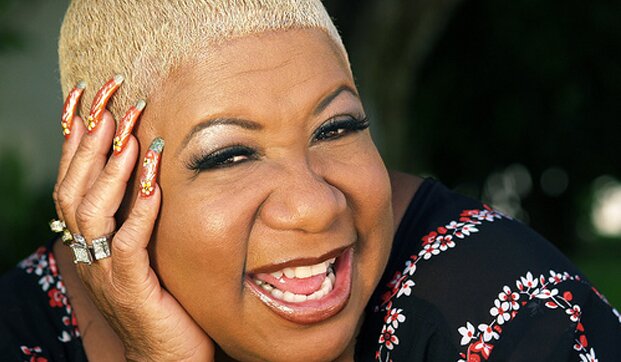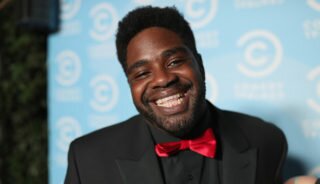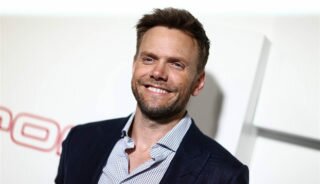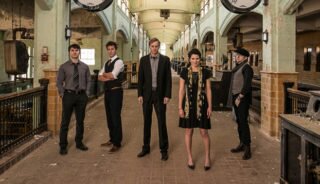
Predicting the kind of art people will enjoy is mostly an exercise in futility, yet I sometimes wonder if people know something they’re creating is going to be great while they’re creating it.
The answer is almost always no, they don’t, because if the artist is preoccupied with thinking about how their work is going to be perceived, that essentially derails the art’s truthfulness and if smart observers sense even an hint of fakeness, they’ll ignore or criticize it, our latest presidential election notwithstanding.
Luenell, a stand-up comedian and actor who is headlining Goodnights Comedy Club in Raleigh this week, said in a Thursday morning interview that she thought some of the movies she has done would receive critical and commercial acclaim and that she had no idea if others would make sense to anybody, and she admitted being wrong on both counts.
Therefore, while she’s filming, she doesn’t worry about how audiences or critics might interpret the finished product. Rather, she focuses on her job of being “a vehicle” for the character she’s playing and that sense of staying in the moment has served her well during a successful show business career that includes her outstanding role in “Borat: Cultural Learnings of America for Make Benefit Glorious Nation of Kazakhstan” and yes, in case you forgot, that really is the full, hilarious title of the movie.
In addition to numerous movie and TV credits, Luenell is a veteran stand-up and we talked about the connection she feels with a comedy crowd, how my questions stack up to other interviews she has done, why she is reluctant to give advice and much more.
Enjoy the interview, follow Luenell and don’t forget The Best Tweet I Can Find in Five Minutes at the end.
Tony Castleberry: Do you know while you’re filming that some movies are going to be hits and others aren’t?
Luenell: I don’t because of the oddity of the movies I’ve done. I’m not always on point (gauging a movie’s popularity). Like, when I did “Borat,” I had never said that word, Borat. I didn’t know what a Borat was. [interviewer laughs] It looked like just some nonsense to me when I was doing it. Little did I know the blockbuster that it was going to be.
When I did “That’s My Boy” with Adam Sandler, I just knew that that would be a blockbuster, but it was not because people had gotten so used to Adam doing the family friendly, dorky movies. When he went back to what he loved, which is the raunchy thing, nobody noticed that there was an R rating. They grabbed their kids, grabbed the popcorn and went to this movie and in the first five minutes, a kid was having sex with his teacher. They ran screaming from the theater. I thought that one was going to be a hit and it wasn’t.
Then I did a movie called “School Dance” with Nick Cannon, Mike Epps, Kevin Hart, myself and Katt Williams and I just knew that would be a blockbuster and something happened with Lions Gate and it didn’t come out right. I haven’t done any movies like “Fences” or “The Help” or “Schindler’s List” or anything like that to know that I was gonna be in a blockbuster so my meter is off.
TC: The big picture of “Is this a hit or is it not?” is probably the furthest thing from your mind while you’re filming, isn’t it?
L: At that point in time, I believe you’re correct, but I know that some things, you must know are going to be amazing. If you do something like “Wedding Crashers,” you’ve got to know that’s gonna be a hit. It’s so funny and so fun and so wild. If you do a Madea series, which have been guaranteed blockbusters every time they came out, or a “Straight Outta Compton” or a good biopic, I think sometimes you know or you expect (them to be hits), but nobody that I know goes into the work trying to make that the goal.
TC: You took “Borat” to another level. What stands out in your memory about shooting that movie?
L: Oh, so many things. First of all, I was just sitting at home. I had auditioned with Larry Charles, the director, and Sasha Baron Cohen, who I had never seen out of his Ali G gear. I didn’t really know who he was. From the audition process, which was crazy, I didn’t hear anything. Then, all of a sudden, I start getting emails telling me, “Pack. You’re getting ready to go to Bucharest, Romania.” That’s where the Kazakhstani scenes were shot. So you’ve got a girl that’s sitting on Crenshaw Boulevard in L.A. one day. You’re on a plane to Romania the next day. That was a crazy memory.
Also, running from the police in a little jean mini-skirt and a leopard bra, in the South. I remember that quite distinctly. [interviewer laughs] The dinner party scene, they always called the police and we had to run. You can’t do a retake when you’re doing a movie like that. We shot that three times, but we had to go to three different cities and three different, very well-to-do families. We let them know there was a foreign dignitary in town and he wants to have dinner at one of the most distinguished houses. “Oh yes, we’d just love to have that dignitary come to our home. We’ll make this beautiful meal” and all that. Each of the three times we did it, they were so insulted that they called the police on us and we had to run, literally, from the police.
That movie was, and remains, pretty iconic in the way that it was filmed. It was ultimately nominated for a Golden Globe, and it won, and nominated for an Academy Award as well.
TC: It’s a piece of movie history that will stand the test of time for how original it is, but also just laugh out loud funny.
L: I’m very pleased that people have said what you said, that in the midst of all the insanity, I was able to bring some tenderness and a little romance and love and sincerity to my part in the film. That’s due to my director though. That’s due to Larry Charles because I’m just a vehicle and I do what I’m told. I can take direction so I acted it the way he told me, and it turned out to be brilliant.
TC: Which is more enjoyable for you: a great stand-up set or really nailing a scene for TV or a movie?
L: For me, it’s a great stand-up set because of the immediate gratification that you get at that moment right there with people staring right at you. It just doesn’t get any better for a person who is a stand-up, like myself. There are people who do stand-up and who are stand-up, and I are one. [interviewer laughs]
Professionally, it would be very gratifying to have a really meaty role and know that I got all my lines right and all my beats right and my facial expressions and everything and be able to have that come out on film forever for people to enjoy and see my work. But personally, just for my own ego, I’d pick the stand-up response.
TC: To hear comics describe having people right there in front of you the way that you do and taking them on this ride that you can take them on through good comedy, there’s really nothing like that, is it? It seems like a singular kind of thing.
L: It is because you don’t have a band and you don’t have a writer and you don’t have a director. You are your own everything. When you do well, there’s nobody but the good Lord and yourself to thank, but when you don’t do well, there’s nobody but yourself to blame. You can’t even blame that one on the Lord. [interviewer laughs] I really enjoy it. For me, it’s almost like therapy or church because for an hour and some change, it’s not a democracy. It’s a dictatorship. It’s exactly what I say. It’s not up for discussion.
I also appreciate you, the media, because I like it when people ask us real questions. People come and see stand-up comedians like you view an animal in the zoo. You just come and look and leave and nobody ever talks to us or asks us any pertinent questions about our lives. … I appreciate really good questions when I do an interview. It’s frustrating to do five interviews in a day and everybody asks the same questions. Often times, when I do a flurry of shows, like six in a weekend, on Sunday, I like to do and Q and A where we turn up the lights (in the club) and for like 15 minutes, the audience can ask any questions they want, personal or professional. That way, I feel like when I leave, people have gotten to know me a little bit more rather than just paid like they came to see a movie and leave.
TC: I think that’s a great idea. What advice would you give to a young person who wants to be a comedian?
L: I rarely give advice because I like to give advice when I know that people are gonna take it. [Luenell, interviewer laugh] A lot of times, you can tell these young people something and it goes in one ear and out the other. It’s not like when I used to go to clubs for hours all over town and just watch, not try to get on stage. Just watch and study (other comedians). These people (today) are so mic hungry that they just want to get on stage all over town, but they’re not taking the time to study so I rarely give advice. But the advice I would give is that this is not a type of business where you’re going to get a lot of pats on the back if you’re not confident in what you’re doing. You have to know whether you’re good or not. Just because you’re funny at the family barbecue doesn’t mean you can go and entertain 400 people who don’t know you from a can of paint. [interviewer laughs] It’s a business and you have to be, as they used to say in the corporate world, a self-starter. You have to not be one of these thirsty people. “How did I do?” There’s not a lot of people who are gonna hold your hand through the comedy process because it’s a very me-me-me business. Everybody is trying to get on themselves. This isn’t like a mentorship where people are like, “Here, I’ll hold your hand and guide you through.” We’re all just trying to hold on the best way we can.
Us older comics who have been in the game are trying to find another title for the Instagram, Insta-ho, Insta-YouTube entertainers that are coming into comedy clubs, but they’re not really comedians, you know what I mean? They’re just an Internet phenomenon and I doubt that they’ll have fans in 26 years or 30 years like most of us do. It’s a flash in the pan and they’re gonna get their money while they can.
It can be a very lonely business at times, but you just have to be very strong within yourself. There’s only one reason, I think, to do stand-up comedy. You should only do it if you feel like you would die if you didn’t do it.
Here it is, The Best Tweet I Can Find in Five Minutes:
"Change a heart to a little white dove
More than a feeling, that's the power of love"
Huey Lewis and the Fake News— (((Andy Kindler)))








